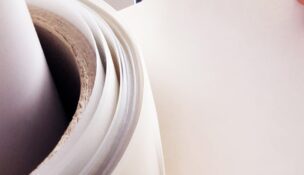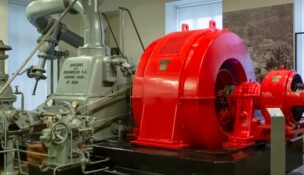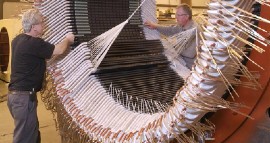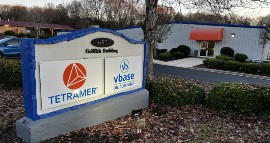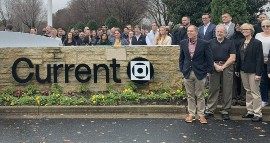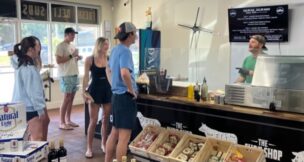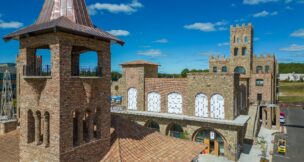Engines replaced by silence of the lambs
Staff //July 27, 2018//
Editor's Note: This story originally appeared in the July 23, 2018 issue of GSA Business Report.
Furman University’s $1.7 million solar array alongside Poinsett Highway has been supplying the campus with electrical power since May 2017. The installation features 2,994 solar panels across six acres. And now it features something else — sheep. A dozen St. Croix sheep to be exact.
The sheep are grazing on the property as part of an experiment to further reduce costs for the university. The sheep eat grass and can easily get under the solar panels without causing damage.
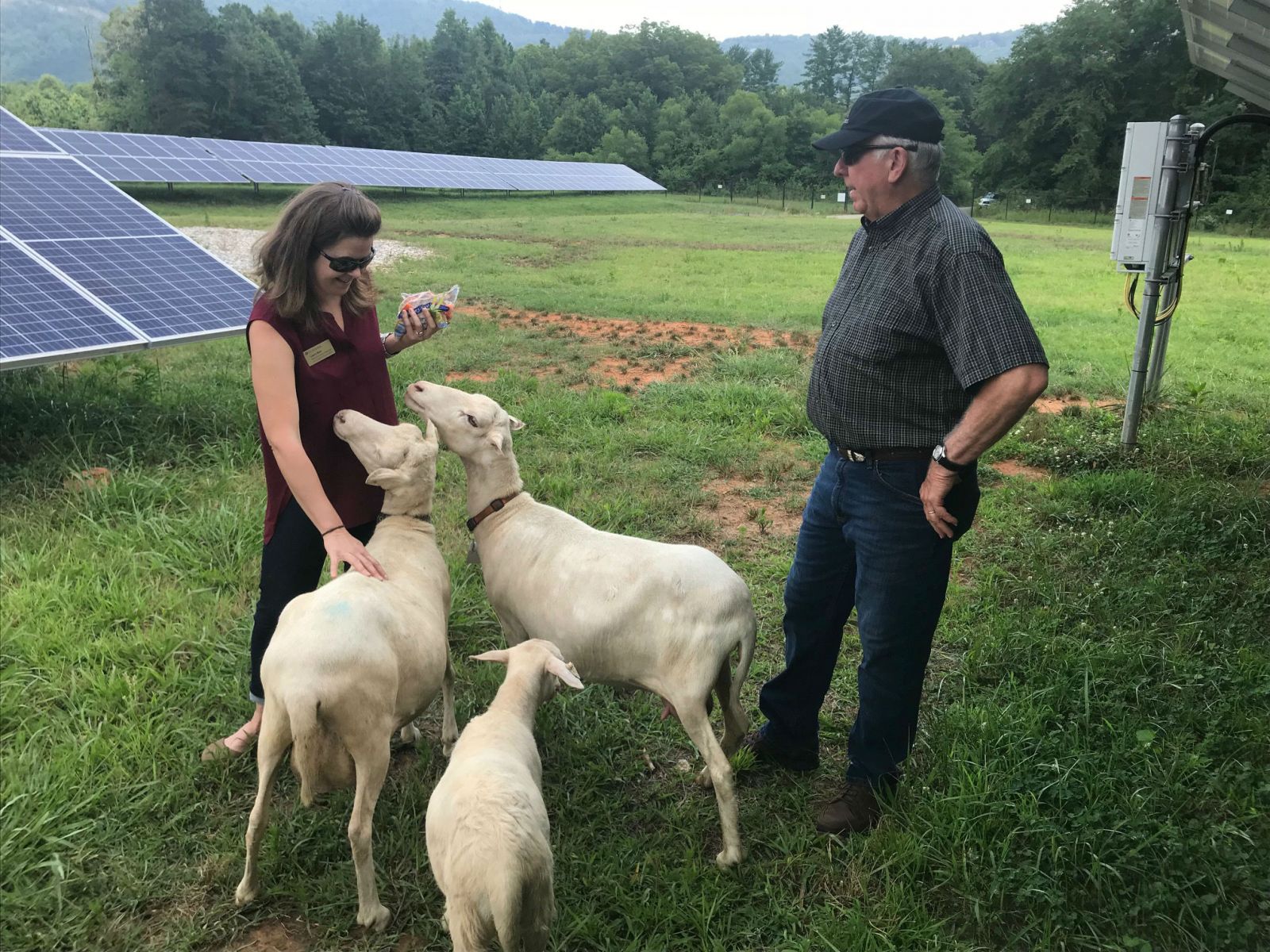 Jeff Redderson, associate vice president of facility and campus services at Furman, said it is expensive keeping the grass mowed at the solar farm, especially under the solar panels, where it has to be cut with more labor-intensive push mowers and weed trimmers.
Jeff Redderson, associate vice president of facility and campus services at Furman, said it is expensive keeping the grass mowed at the solar farm, especially under the solar panels, where it has to be cut with more labor-intensive push mowers and weed trimmers.
“We’ve been utilizing a contractor at $1,250 a visit,” he said. “Assuming the grass needs cut every six weeks during a growing season, that’s $7,500 a year just to mow under the panels.”
Redderson said a riding mower is used to keep the grass cut on the rest of the property, and that runs another $1,500 a year.
“We’re looking at $9,000 a year on mowing and trimming at the site,” he said.
The sheep project is in the early stages. Redderson said the university is studying how many sheep will get the job done, how long it will take each season and at what cost.
“The sheep are a sustainable solution. We just need to fine tune it,” he said.
Greenville County farmer Steve Wood has been raising St. Croix sheep for about eight years. He provided the university with the sheep and said they are low maintenance compared to other sheep in that they are not sheared for their wool.
“These sheep grow thick hair during winter and simply rub up against a fence or a tree in the spring to shed it,” he said. “And they do very well in snow and hot humid weather.
“Sheep are God’s lawn mowers,” he added. “Horses and cattle are too big, and goats will climb and damage the panels.”
Redderson and Wood are working on the project with the Shi Center for Sustainability at Furman. Laura Bain, the center’s associate director of sustainability assessment, said the practice of using sheep in this manner is not new, but she believes Furman’s solar farm is the only one in South Carolina using sheep for grass maintenance.
The sheep moved in after students left for the summer. Bain is interested in getting students involved in the project.
“We’re trying to work out details about what kind of interaction the students can have. It depends on the rules for animal research that the university has to abide by,” Bain said. “I’m really hoping we can get some students involved in helping us answer the questions about numbers and cost savings.
“Because Furman intently focuses on the experience of the students, the more we can get them involved and engaged the better,” she said.
e






